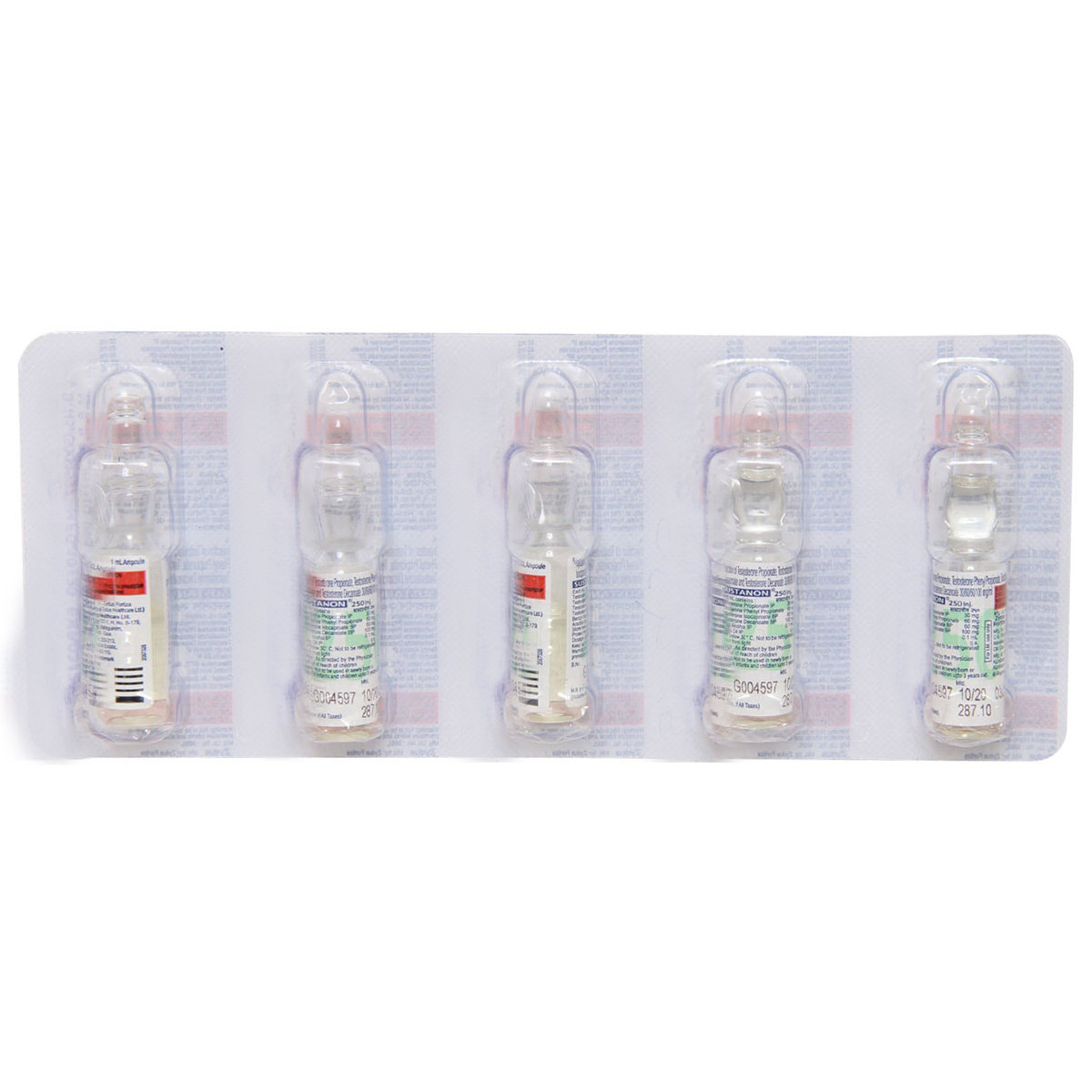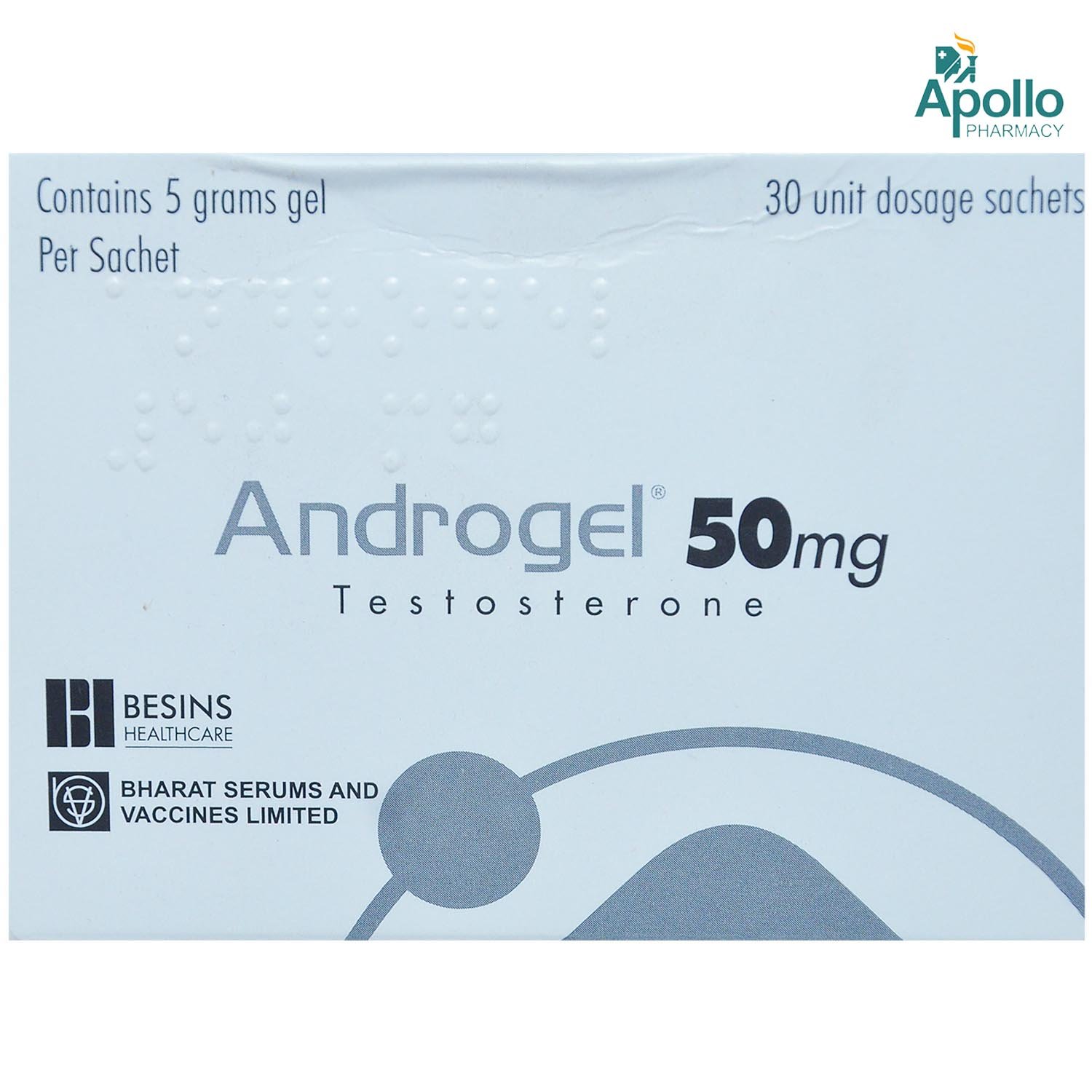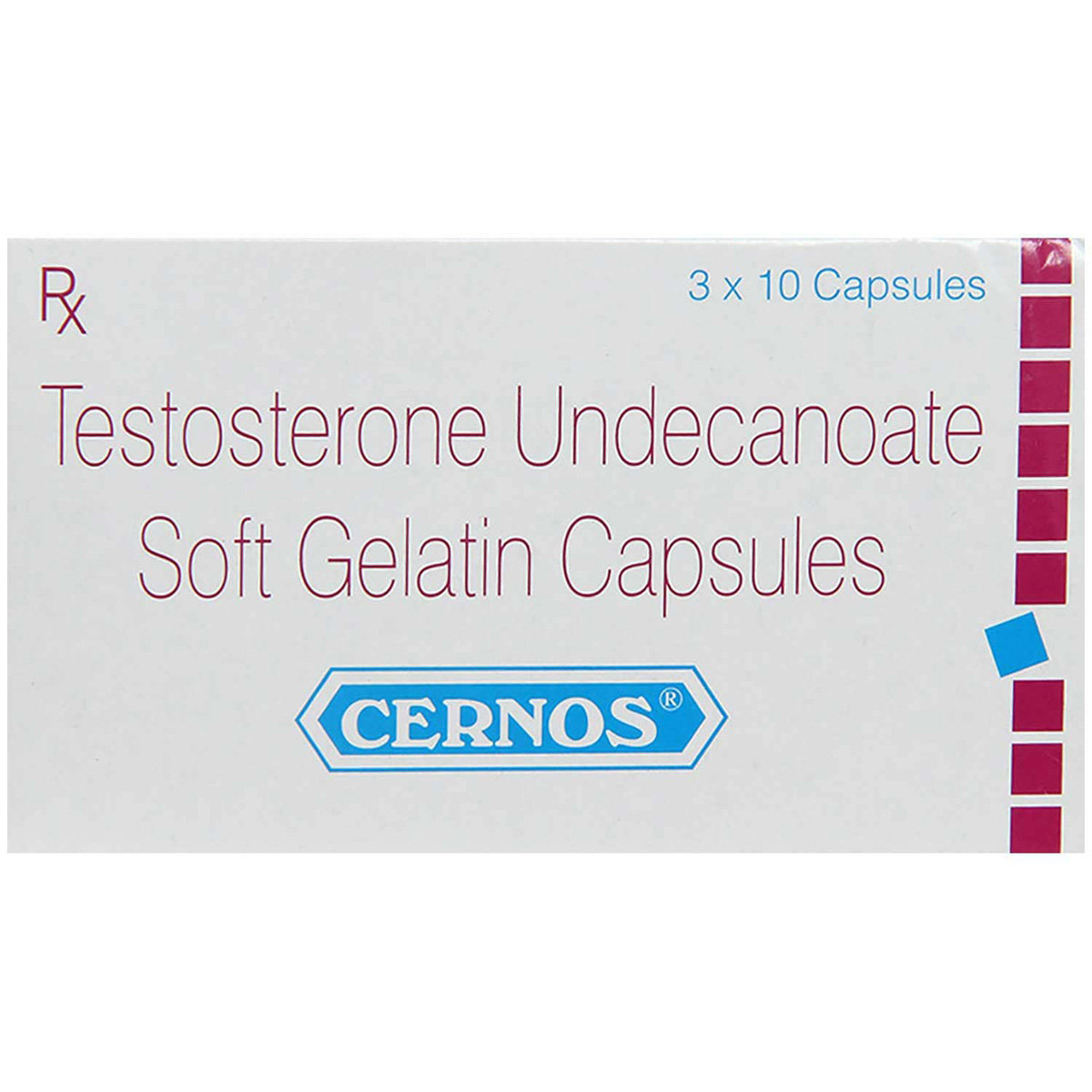Testosterone
About Testosterone
Testosterone belongs to a group of medicines called androgens indicated for replacement therapy in males for conditions associated with deficiency/absence of endogenous testosterone, such as acquired or congenital primary hypogonadism and hypogonadotropic hypogonadism. Testosterone replacement therapy, also known as androgen replacement therapy, is used to treat low testosterone levels.
Testosterone contains Testosterone, which helps replenish the deficient testosterone levels in adult men. Thereby, Testosterone helps in treating low testosterone levels. Testosterone is the anabolic steroid and primary sex hormone in males, which plays an important role in the development of male reproductive tissues like the prostate and testes.
In some cases, Testosterone may cause side effects such as application site reactions, acne, prostatic disorders, and headache. Most of these side effects do not require medical attention and will resolve gradually over time. However, you are advised to talk to your doctor if the side effects persist or worsen.
Let your doctor know if you are allergic to any of the components in Testosterone. Do not use Testosterone if you are pregnant or breastfeeding. Testosterone is not recommended for children below 18 years as safety and effectiveness have not been established. Keep your doctor informed about your health conditions and the medicines you are taking to rule out any side effects/interactions.
Uses of Testosterone
Medicinal Benefits
Testosterone belongs to a group of medicines called androgens indicated for replacement therapy in males for conditions associated with deficiency/absence of endogenous testosterone, such as acquired or congenital primary hypogonadism and hypogonadotropic hypogonadism. Testosterone contains Testosterone, which helps replenish the deficient testosterone levels in adult men. Thereby, Testosterone helps in treating low testosterone levels.
Directions for Use
Storage
Side Effects of Testosterone
- Application site reactions
- Acne
- Headache
- Prostatic disorders
Drug Warnings
Do not use Testosterone if you are allergic to any of its components, if you have prostate cancer or breast cancer, or if you are pregnant or breastfeeding. Testosterone is not intended for use in women due to a lack of controlled studies on women. Inform your doctor if you have high blood pressure, heart problems, high red blood cell count or haemoglobin/haematocrit levels, enlarged prostate, liver or kidney problems, migraine, sleep apnoea (breathing problem while sleeping), hypercalcemia (high calcium levels), hypercalciuria (excess calcium in the urine) or oedema. Testosterone is not recommended for children below 18 years as safety and effectiveness have not been established. Virilisation (female develops characteristics associated with male hormones) have been reported in children who were secondarily exposed to testosterone gel. Children should avoid contact with unclothed/unwashed application sites of men using Testosterone.
Drug Interactions
Drug-Drug Interactions: Inform your doctor if you are taking anti-diabetic medicines (insulin), anti-coagulants/blood thinners, and corticosteroids.
Drug-Food Interactions: No interactions found/established.
Drug-Disease Interactions: Inform your doctor if you have prostate cancer, fluid retention/oedema, high calcium levels, or enlarged prostate.
Drug-Drug Interactions Checker List:
Safety Advice

Alcohol
cautionIt is unknown if alcohol interacts with Testosterone. Please consult your doctor.

Pregnancy
unsafeTestosterone belongs to pregnancy category X. Do not use Testosterone if you are pregnant as it may cause foetal harm.

Breast Feeding
unsafeAvoid using Testosterone if you are breastfeeding, as it may cause adverse reactions in your infants.

Driving
consult your doctorIt is not known if Testosterone affects your ability to drive. Drive or operate machinery only if you are alert.

Liver
consult your doctorNo studies have been performed on the effects of Testosterone in patients with liver impairment. Please consult your doctor if you have a liver impairment or any concerns.

Kidney
consult your doctorNo studies have been performed on the effects of Testosterone in patients with kidney impairment. Please consult your doctor if you have kidney impairment or any concerns.

Children
unsafeTestosterone is not recommended in children below 18 years as safety and effectiveness have not been established.
Habit Forming
Diet & Lifestyle Advise
- Tuna, egg yolks, fortified cereals, oysters, shellfish, and beans are good sources of Testosterone.
- Maintain a healthy diet and exercise regularly.
- Get ample rest and proper sleep.
- Reduce stress levels by doing meditation.
Special Advise
- Avoid flame, fire, or smoking until the gel has dried.
- Women and children should avoid contact with undried or unwashed application sites of men using Testosterone.
- Wash your hands with soap and water after using Testosterone.
- Be sure to wash the application site with soap and water before any situation where skin-to-skin contact of the application site with another person is anticipated.
- If the unwashed/unclothed application site comes in contact with the other person's skin, the contact skin area of the other person must be washed with soap and water as soon as possible.
Patients Concern
Disease/Condition Glossary
Testosterone replacement therapy: Testosterone replacement therapy, also known as androgen replacement therapy, is used to treat low testosterone levels. Testosterone is the anabolic steroid and primary sex hormone in males, which plays an important role in developing male reproductive tissues like the prostate and testes. Symptoms of low testosterone include reduced sex drive, erectile dysfunction, low/zero sperm count, loss of pubic/armpit hair, shrinking testicles, and hot flashes.
Primary hypogonadism: Primary hypogonadism is a condition in which the gonads (testes in men and ovaries in women) produce insufficient sex hormones. Sex hormones are responsible for secondary sexual characteristics such as testicular development in men and breast development in women. Autoimmune disorders, genetic disorders, severe infections, pituitary disorders, and inflammatory diseases could be the causes of hypogonadism. Symptoms of hypogonadism include abnormal breast growth, erectile dysfunction, muscle loss, loss of body hair, osteoporosis, low sex drive, infertility, fatigue, hot flashes, and difficulty concentrating.
Hypogonadotropic hypogonadism: It is a form of hypogonadism that occurs due to a problem with the hypothalamus or pituitary gland. It is caused due to lack of the gonadotropin-releasing hormone, follicle-stimulating hormone (FSH), and luteinising hormone (LH). Damage to the pituitary gland, genetic defects, high prolactin levels, severe stress, nutritional problems, and certain medical conditions could be the causes of hypogonadotropic hypogonadism.
FAQs
Testosterone helps in replenishing the deficient testosterone levels in adult men. Thereby helping in treating low testosterone levels.
Testosterone might lower the blood glucose levels and, therefore, might lower insulin requirements in diabetic patients. So, you are advised to consult a doctor if you are diabetic; your doctor may adjust the dose accordingly. Regularly monitor blood sugar levels while using Testosterone if you are diabetic.
Avoid showering and swimming for at least 5 hours after applying Testosterone.
Testosterone should be used with caution in patients with benign prostatic hyperplasia (BPH) as they are at an increased risk for worsening signs and symptoms of BPH.
Concurrent use of Testosterone with corticosteroids or adrenocorticotropic hormone (ACTH) might result in increased fluid retention. Careful monitoring is necessary for patients with cardiac, liver or kidney disease.
Testosterone might increase the risk of prostate cancer. It is recommended to evaluate patients for prostate cancer before initiating and during treatment with Testosterone.
Testosterone may cause changes in anticoagulant activity. Therefore, frequent monitoring of prothrombin time and the International Normalised Ratio (INR) is advised.
Testosterone should be used with caution in cancer patients at risk of hypercalcemia (high calcium levels) and associated hypercalciuria (excess calcium in the urine). Regular monitoring of serum calcium levels is advised.








